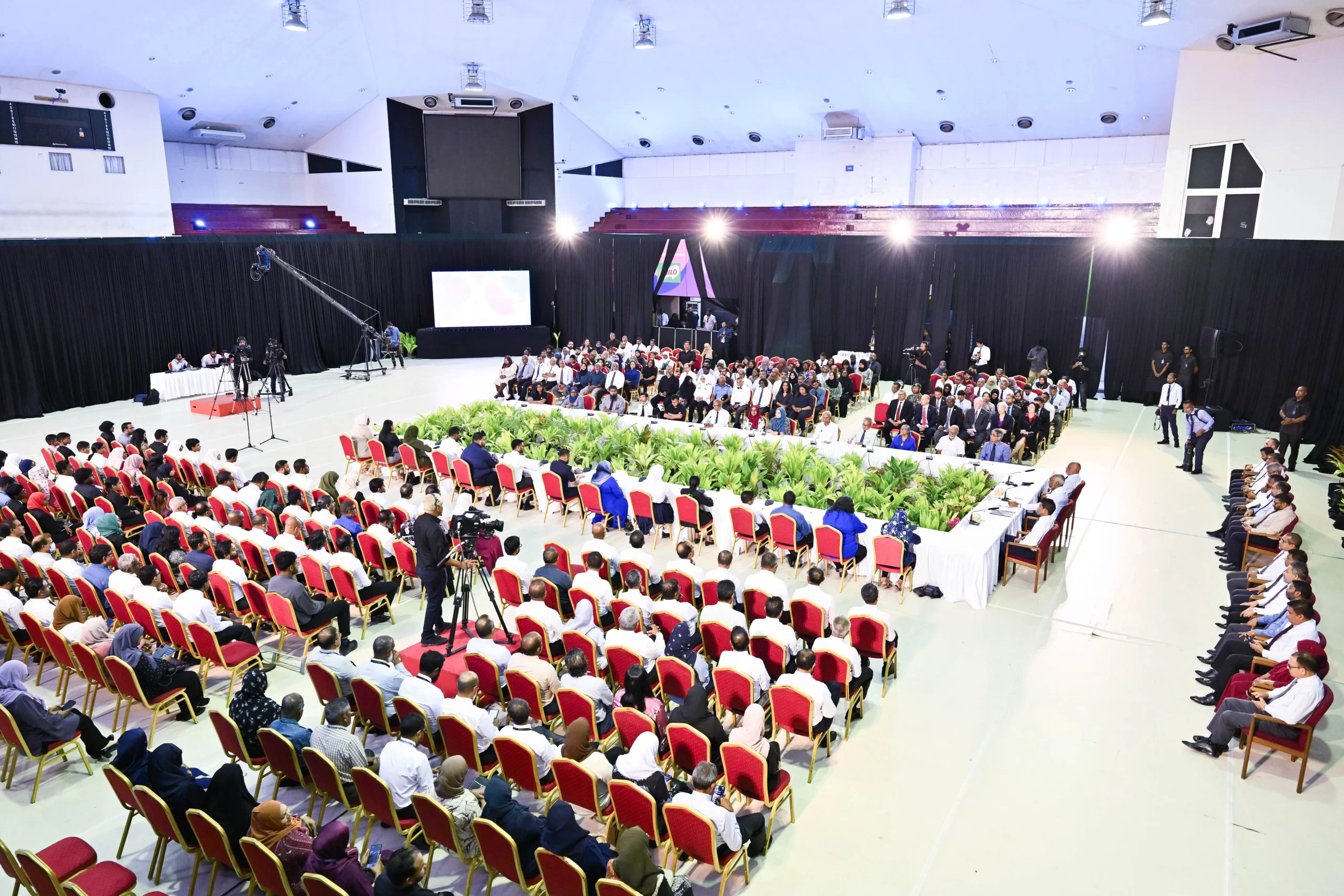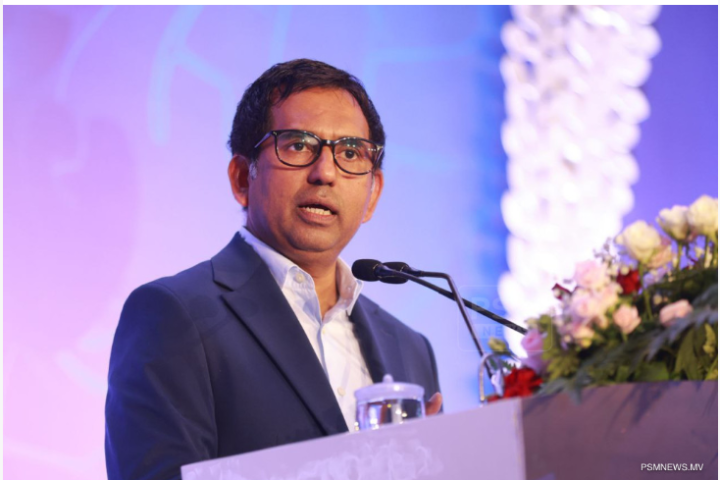MALE’, Maldives — The Maldives has launched discussions on a 20-year National Development Plan aimed at reshaping the country’s economic and social landscape, with a goal to be classified as a developed nation by 2040. President Dr. Mohamed Muizzu formally initiated the planning phase at a ceremony held at the Youth Center, emphasizing broad public engagement and unity in the effort.
Announced following a Cabinet decision in September, the plan is intended to be a legally binding blueprint that incorporates citizen input on the Maldives’ future direction. President Muizzu called for participation across all political lines and demographics, urging Maldivians from all islands to contribute ideas and opinions.
“We want to develop the country. People to become affluent,” he said, affirming his vision for a prosperous Maldives where collective effort drives national progress.
In partnership with the United Nations Development Programme (UNDP) and the Australian government, the administration aims to finalize the plan within a year. To ensure its long-term viability, the government intends to amend the Constitution to reinforce the plan’s stability, seeking to avoid the fate of past initiatives like Vision 2020, which lapsed without follow-through.
The Maldives has seen ambitious development initiatives before, notably the Vision 2020 document introduced under former President Maumoon Abdul Gayoom. Despite its forward-looking goals, however, Vision 2020 faded into obscurity as the target year approached. The absence of continuity and institutional memory meant that few officials could recall the document’s objectives, let alone measure its progress. This recurring pattern highlights a persistent issue in Maldivian governance, where promising frameworks struggle to endure over time, often undermined by administrative changes and weak record-keeping.
The government should acknowledge these recurring barriers to sustaining long-term plans, including insufficient data preservation, inadequate record-keeping, and an overreliance on individuals rather than institutional systems.
Ministries often lack structured mechanisms to maintain records, making institutional memory dependent on personnel who frequently rotate out, especially within the civil service. Even the post of Permanent Secretary, which could support bureaucratic continuity, often functions more as a political tool than as an administrative anchor.
For the national development plan to succeed, President Muizzu should address these structural gaps, committing to a more organized, enduring approach to national progress.












